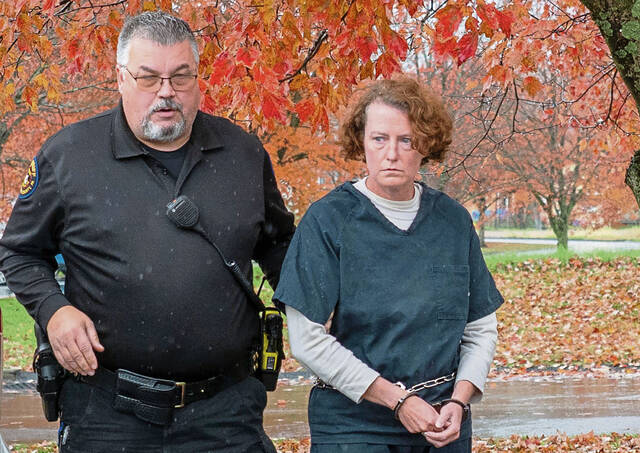A Harrison City doctor accused of illegally distributing the anti-opioid drug Suboxone will not stand trial in federal court Tuesday, sources said.
Dr. Felix Brizuela Jr., 58, was scheduled to go to trial in U.S. District Court in Wheeling, W.Va., with co-defendant Dr. George Naum III on a charge of conspiracy to distribute controlled substances outside the bounds of professional medical practice.
Brizuela lives in Harrison City but practiced medicine out of offices in Connellsville, Fayette County, and Morgantown, W.Va., and a drug treatment center in Weirton, W.Va. The latter, known as Advance Healthcare Inc., was closed down after federal authorities began an investigation into Brizuela and Naum’s prescription practices.
A federal grand jury indicted the two in 2018. A business associate, Eric Drake, also was indicted.
They were accused of conspiring to distribute the Schedule III controlled substance buprenorphine, often sold under the brand name Suboxone, to opioid addicts without proper medical supervision and against federal regulations from 2008-16.
“The evidence at trial will be that Dr. Naum and Dr. Brizuela essentially leased their (Drug Enforcement Administration) registration numbers to Advance Healthcare co-owner Eric Drake and Sharon Jackson, a registered nurse, in exchange for monthly payments of several thousand dollars,” Assistant U.S. Attorney Sarah Wagner said in a motion.
Drake pleaded guilty in October to one count of distribution of a controlled substance. Jackson pleaded guilty in 2017 to one count of conspiracy to distribute.
In January, after a seven-day trial in Clarksburg, W.Va., Brizuela was convicted of 15 of the original 37 counts in the indictment. He was acquitted on 15 counts involving an alleged kickback scheme and on six of 21 distribution charges stemming from the Morgantown practice.
The conspiracy charge was being handled separately, but court documents filed last week said Brizuela would be unable to attend the trial because of an “acute medical emergency resulting in surgery.”
On Monday, U.S. District Judge Irene Keeley granted a government motion dismissing the conspiracy charge against Brizuela but preserving it for a later date.
Pittsburgh attorney Douglas Sughrue said he and the U.S. Attorney’s Office in Wheeling reached a “tolling” agreement whereby the statute of limitations will be paused pending Brizuela’s appeal of his January conviction.
If the appeal is successful, the government will have 60 days after the appeal becomes final in which to refile the conspiracy charge against Brizuela.
Meanwhile, Naum’s trial is scheduled to proceed as planned Tuesday. His attorney, Ronald Chapman II, of Troy, Mich., has filed a motion for the dismissal of five of the 10 counts contained in the indictment.
According to the indictment, Naum and Brizuela illegally delegated the prescribing of Suboxone prescriptions to Drake and Jackson. Although the doctors had a waiver allowing them to prescribe Suboxone for medication-assisted treatment of opioid addicts, the other office personnel were not authorized to do so, according to court documents.
In 2016, Congress amended the Drug Addiction Treatment Act of 2000 to allow nurse practitioners and physician assistants to obtain waivers — but not registered nurses.
“The evidence at trial will be that neither physician regularly saw their patients; neither physician determined the appropriate dosages of Suboxone; and neither physician ordered prescriptions for Suboxone to the patients at Advance Healthcare,” Wagner said in a motion.
“Instead, both physicians generally saw their patients, at best, on one occasion, and allowed Ms. Jackson to give cursory examinations to patients (including new patients), to decide what amount of Suboxone to give patients, and then to order and call in those prescriptions to local pharmacies, all without the supervision of the doctors,” Wagner said.
Naum, however, contends the practices at Advance Healthcare were well within the norm for medication-assisted treatment and similar to the hub-and-spoke model being used in some states.
“While this (court) district is prosecuting physicians for expanding treatment through the use of nurses and other providers, the state of Vermont is applauding it,” Chapman said in a court filing.
In the Vermont hub-and-spoke system, “hubs” are regional addiction treatment centers staffed by a doctor and a team of nurses and other clinicians, while “spokes” are regular doctors’ offices qualified to provide medication-assisted treatment.








